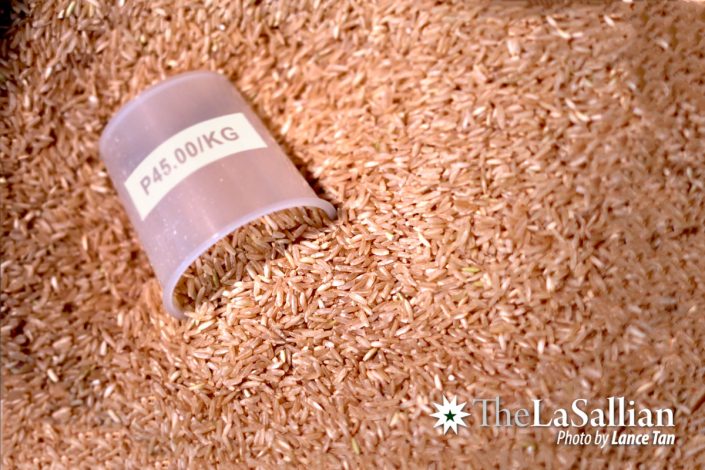And for his next party trick, President Ferdinand Marcos Jr. imposes a price ceiling on rice. That’s right, folks, he just made it cheaper in the blink of an eye!
Even after taking over the agriculture department himself, Marcos could not make effective reforms to fulfill his campaign promise of bringing down the price of rice, a politically contentious commodity. Last September 1, he finally chose the laziest path, slapping a ceiling on rice to stop its prices from rising and his support base from crumbling.
The government has a habit of blaming inflation on hoarders, dismissing the economic phenomena behind them to excuse themselves from having to deal with the root of the issue. Former President Rodrigo Duterte’s Department of Agriculture (DA) would then impose price ceilings on pork during shortages, saying caps would prevent traders from taking advantage. This time, the Palace, in its price cap order, puts the blame on illegal price manipulations, geopolitical conflicts, India’s rice export ban, and capricious oil prices in the international market.
These phenomena are real but are nonetheless scapegoats that attempt to dismiss the shortcomings in how our local agricultural industry is structured. Production costs remain high, technologies lag behind international standards, agrarian reform progress is slow, and the industry as a whole is severely uncompetitive.
But let’s be real. There is not enough time nor political will for the Marcos administration to implement long-term solutions to keep its supporters on its side. I have seen a handful of Marcos supporters who have started complaining about the president’s response to inflation, and no doubt Malacañang has caught wind of this increasingly frustrated pulse. With Marcos’ promise to make rice just P20 per kilo nowhere in sight, this move seems to be a desperate attempt to create a sense of progress in the concurrent agriculture secretary’s rather unfruitful career so far.

As of end-August, local well-milled rice could run up to P56 per kilo and regular milled up to P55, according to the DA price watch. Imported versions sold cheaper at up to P52 and P43, respectively. Marcos’ new executive order caps these prices at P45 for well-milled rice and P41 for regular milled. Clearly, the local farmer loses more than the importer.
The uncapped prices are already reflective of the current conditions of the market, given the typhoon season and the perpetually high costs of rice production in this country. Putting caps would relieve consumers’ price woes for maybe a month, but it would also mean less earnings for farmers. This is a band-aid solution that could turn into a shortage problem. We will not notice that for a while, not until we recreate scenes from the 1970s where people lined up for remaining stocks of rice.
Of course, this is just theory, which is commonly dismissed, kesyo it’s not grounded in reality. Besides, if a cabinet manned by renowned technocrats lets such a theoretically impractical policy through, then who are we to judge? But that same cabinet earlier said that they were not consulted about the price caps and were actually surprised by it, then later came around to “support” the move as a dire short-term measure. Meanwhile, just after the executive order was signed, former Finance Undersecretary Cielo Magno on social media ominously posted a demand-supply graph that shows how a price ceiling could cause a shortage, with just the caption “I miss teaching.” After the economist stepped down from the cabinet, Executive Secretary Lucas Bersamin said that she was in fact terminated “as she clearly does not support the administration and its programs for nation-building.”
Policymaking is turning into a magic show that will keep the masses entertained for long enough. Every president will be so focused on falsifying a sense of progress within a mere six years, which is indubitably not enough to turn the Philippines into a paradise as they always promise to achieve. Food security, or any kind of security, will always be elusive if every administration is in a cycle of covering up the consequences of their predecessors’ cheap tricks.
